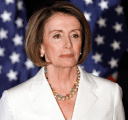Education
Why the Tariff Talk Is Bigger Than Just Politics

If you've been watching the markets this week, you've probably felt it: a weird mix of déjà vu, Twitter drama, and financial whiplash.
Trump’s latest wave of tariffs isn’t just sparking international tension — it’s triggering a full-blown revolt from some of his biggest former allies. Elon Musk is roasting White House economists. Bill Ackman is warning about economic collapse. Stanley Druckenmiller is chiming in. Markets? They're flinching hard.
Behind the memes and headlines, there’s a real question worth asking:
How do you invest when political policy becomes the biggest market mover?
Let’s break it down — clearly, concisely, and with your portfolio in mind.
What’s Going On With These New Tariffs?
In early April 2025, Trump’s team launched a fresh round of tariffs, aiming to reduce America’s trade deficits and rein in global supply dependencies. Sounds noble on the surface — but economists, investors, and even longtime Trump supporters are calling the execution a mess.
Why? Because the formula his team used to justify the tariffs isn’t based on actual tariff rates, trade flows, or even currency manipulation. It’s built around trade deficits — and that shaky math has investors uneasy.
JPMorgan CEO Jamie Dimon wrote, “We’re not in Kansas anymore.” Musk posted (and deleted) criticism of Trump advisor Peter Navarro, even suggesting a Harvard econ PhD is more red flag than credential. Ouch.
Why It’s Hitting Markets This Hard
Tariffs act like a tax on businesses. Companies that rely on global manufacturing — think Tesla, Apple, or basically half the S&P 500 — now face higher input costs.
Higher costs mean:
Lower profits
Reduced earnings
Potential layoffs
Slower GDP growth
This ripple hits everything. Investors start selling off risk. Volatility spikes. And the Fed’s already in a tight spot, pressured by Trump to cut rates while inflation still simmers from the last cycle.
So yeah, markets are nervous — and they should be.
How the Smart Money Is Reacting

Let’s talk about the billionaire backlash. These aren’t your average market pundits. These are A-listers in finance, and they’re not mincing words:
Elon Musk is publicly questioning Trump’s economic logic and warning that Tesla could be collateral damage.
Bill Ackman, long seen as Trump-adjacent, now wants a 90-day tariff pause, warning of a “self-induced economic nuclear winter.”
Stanley Druckenmiller, who rarely posts, said he doesn’t support tariffs exceeding 10%.
Congressional Republicans are floating a bill to rein in presidential tariff powers. Not a small thing.
Bottom line: The confidence cracks are now showing on both Wall Street and Capitol Hill.
What You Should Do As an Investor
This isn’t the time to panic. But it is the time to be proactive.
Here’s what that looks like:
Reassess Sector Exposure
Industrials, semiconductors, and autos are on the front line of this tariff war. If your portfolio leans into these, make sure you're not overly concentrated. Look toward sectors that benefit from domestic strength — like utilities, U.S.-focused real estate, or small-cap value.
Use Strategy-Driven Automation
Markets driven by political swings don’t follow predictable patterns. Emotion-based trading is where most investors get wrecked.
Automated investing strategies — like the ones we offer at Surmount — can help you stick to tested, rule-based approaches while ignoring the noise. Whether it’s volatility targeting, macro trend-following, or sector rotation, now’s the time to go systematic.
Stay Informed, But Don’t Get Whiplash
You don’t have to react to every headline. Trump’s tariff push is aggressive, but policy shifts this dramatic can (and often do) change fast — especially when money starts talking.
Focus on staying informed without constantly chasing short-term moves. Your job as an investor is to manage risk, not predict chaos.
Watch the Fed and Bond Markets
If this escalates, the Fed may respond — or be forced to sit tight if inflation holds. Either way, Treasury yields and real interest rates will be critical indicators. Smart investors watch bonds for signals before stocks catch up.
Final Thought: Don’t Let Politics Wreck Your Portfolio
It’s tempting to treat moments like this as unique, but in reality? We've seen this before — policy volatility, global tension, market shocks. The investors who survive and grow through it aren’t the ones with the best headlines. They're the ones with discipline, strategy, and systems in place.
At Surmount, our mission is to make that kind of investing accessible — not just to hedge funds, but to you. Whether you’re managing five figures or seven, automated strategies can help you navigate through whatever the market throws at you — tariffs, tantrums, or Tesla tweets.
The information presented is for educational purposes only and not an offer or solicitation for any specific investments. Investments involve risk and are not guaranteed. Consult with a financial adviser before making any investment decisions. Past performance does not guarantee future results.
Automate any portfolio using data-driven strategies made by top creators & professional investors. Turn any investment idea into an automated, testable, and sharable strategy.





